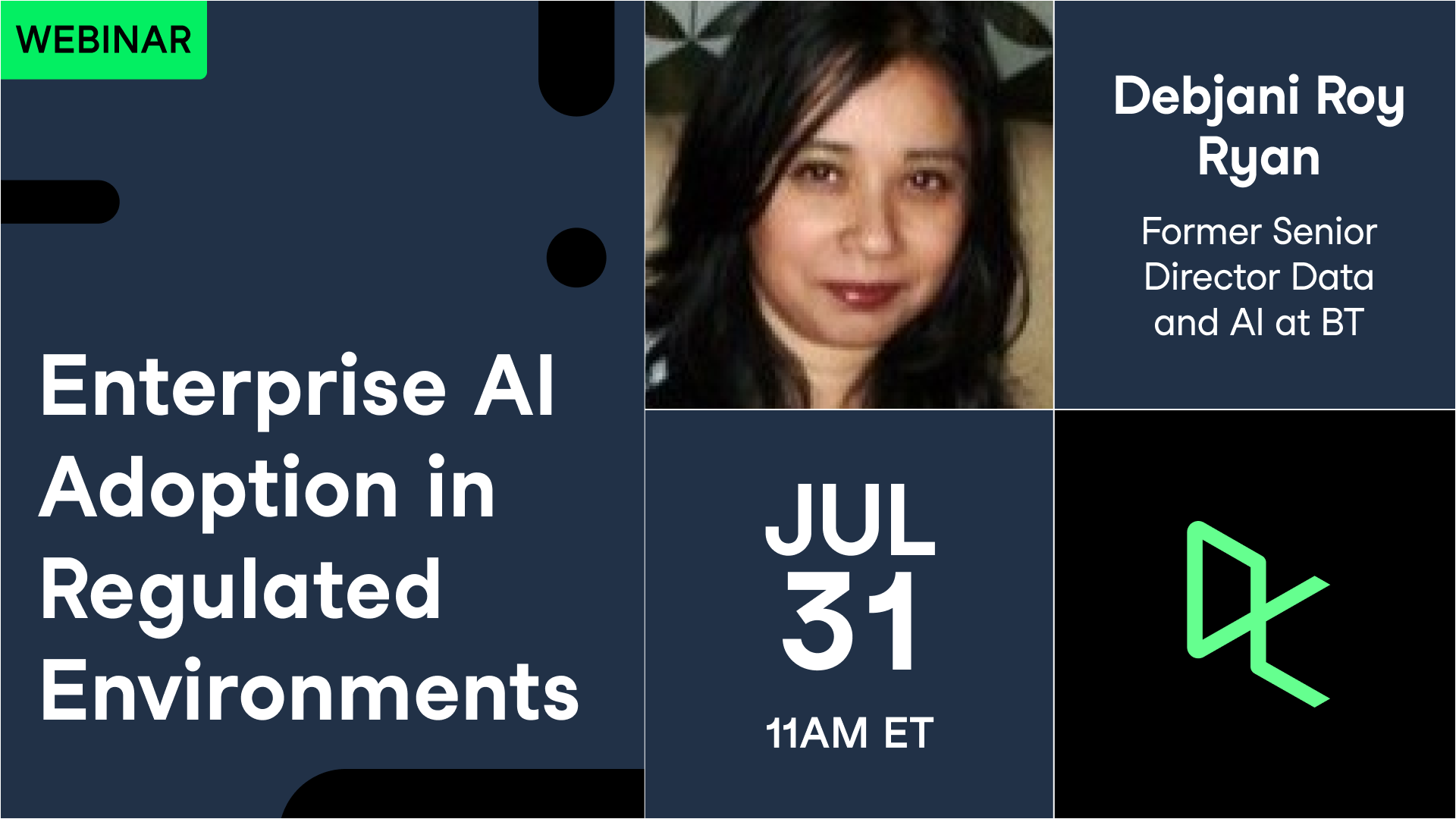Relacionado
webinar
Scaling AI Adoption in Financial Services
Explore regulatory AI initiatives in financial services and how to overcome themwebinar
Building Trust in AI: Scaling Responsible AI Within Your Organization
Explore actionable strategies for embedding responsible AI principles across your organization's AI initiatives.webinar
Increasing Your Organization's Data & AI Maturity
John Thompson, the Head of AI at EY, and Robin Sutara, a Field Chief Data Strategy Officer at Databricks, teach you how to assess your data and AI maturity, and how to improve it.webinar
A Blueprint for AI Transformation
Andrea Freire, Chief Data Officer at Adalitika, outlines a step-by-step blueprint for AI transformation.webinar
Artificial Intelligence for Business Leaders
We'll answer the questions about AI that you've been too afraid to ask.webinar

